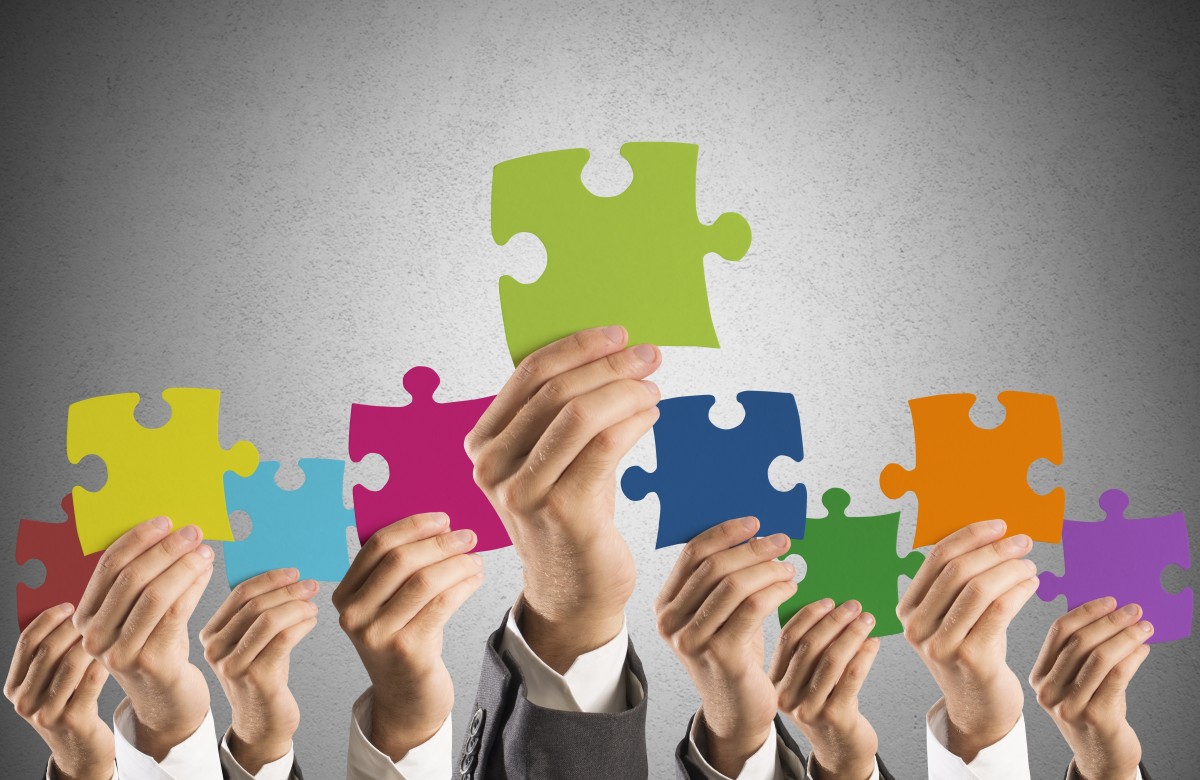What do you think of first when someone says social media?
Is it brand awareness or customer service? Is it Facebook or Twitter?
But, do you think of TEAMWORK?
Teamwork might be a term that is often tossed casually into the modern business discourse. We speak of teamwork in terms of leadership, employees’ engagement, and management, but we fail to recognize how social media can contribute to teamwork and collaboration.
Social media is a tool that connects people, so why do we overlook the importance of social networks and media for our business?
However, while social media emerged focusing on connecting people, in the 21st century, social media has become powerful marketing and management tools and savvy companies see these benefits and advantages. Nevertheless, these companies also understand what benefits social media can have for productivity, engagement, communication and collaboration. Don’t you want your company to be among the savvy ones?
How can a company utilize social media effectively?
Job satisfaction and happy employees
We emphasize the importance of teamwork yet we still see huge percentage of workers who are not engaged, or are actively disengaged at work.
According to Gallup:
- Only 13% of workers are engaged at work
- 24% are “actively disengaged” in their jobs
- 63% report feeling “unhappy” and “not engaged”
Can those “unhappy”, “not engaged” employees truly see the importance of teamwork?
On the other hand, according to a study by Growth Engineering, happy employees are:
- less absent from work
- able to produce more sales (37% greater)
- 31% more productive
- 10% more engaged at work
- 40% more likely to receive a promotion
It is evident that we are talking about company’s culture. Businesses need to build a company culture where employees will be happy and satisfied to work in. Employees, on the other hand, need autonomy at work, they want to be able to use their strengths and improve their skills, and they need to feel a part of the team.
One way to boost their happiness is to cultivate an environment where workplace friendships can thrive, and that’s where social media comes in.
On social media, employees can interact with high-level officers and managers, engage in instant messages and discussed content with other employees, exchange and communicate ideas, find out what hobbies or sports others enjoy and practice informal team bonding and building, feel closer to each other, in a word, form friendships.
Social media are especially good tools for team bonding if you are working with geographically dispersed teams. Friendly atmosphere empowers employees’ engagement and can potentially result in better teamwork and synergy between departments.
According to Globoforce, 89% of workers say work relationships matter to quality of life. “Informal” communication on social media leads to better understanding of your team members’ work preferences, capabilities and needs.
Employee Recognition
Employee happiness comes down to these major elements: autonomy, mastery, and purpose, according to a University of Kent study. For 53% of workers “a job where I can make an impact” is “very important or essential to happiness.” Engaged employees want to see the benefits of their work, they want to know they are making a difference.
While companies can use different means (monthly and yearly awards) to recognize employee’s hard work, social media can act as public forums. On social media, a company can publicly recognize employees for individual and/or team accomplishments.
Any type of work-related announcement does not only values employees’ hard work but send a strong message to the public about company’s interest and investment in its people. Every company should implement a strong employee recognition program; however, such recognition program should not be kept private, but public.
Increased Innovation
Today, ideas come from everywhere. Social media enables more rapid sharing of information and allows for instantaneous dissemination of news, images, audio, video, and other multimedia content. Communication on social media allows team members to connect and share ideas freely. As the saying goes: two heads are better than one.
Companies that include team-building tactics in their social media strategy can boost their employees’ productivity and creativity. Innovation and creativity have roots in a strong teamwork.
Flexibility
Social media can bring flexibility into the work environment by enhancing teamwork. Flexible work hours and freedom to work from any location are important for 55% of millennials, according to a study by RingCentral.
Working in a team gives employees a greater sense of belonging and of recognition and every enhancement of teamwork results in more flexibility and understanding among team members.
A strong correlation between productivity and social media usage at work have been shown in some studies, such as a study by Microsoft Corp and Warck School of Business.
“We found that the ubiquitous digital connectivity altered workers’ sense of ‘presence’ and helped rather than hindered the effective completion of collective tasks“, said a professor at Warck School of Business.
Social media outlets enable positive encouragement from workplace friends can strengthen relationships within the team.
Communication and collaboration
While there are many ways of organizing teams, the fact is that teamwork involves different people and different groups that are working together to reach a common goal. The key to a good teamwork is communication, the ability to send and receive the message in the right way.
However, people also communicate differently; some people understand better if the message is visual, others if the idea is presented face-to-face, for instance. Work communication can significantly improve if team members have additional opportunities to communicate on a personal level. Having more opportunities to communicate on a personal level brings more opportunities to learn how to convey the message in a way a coworker can understand properly.
Moreover, as people are often focused on work all day, especially in high-performance teams, the teams usually split up after work. Social media allows team members to communicate with each other after work hours, bringing them closer together.
Social media has fundamentally altered the business landscape but the use of social media should also be confined to internal communication, which makes social media powerful tools that enhance and empower teamwork.





Leave a Reply
You must be logged in to post a comment.